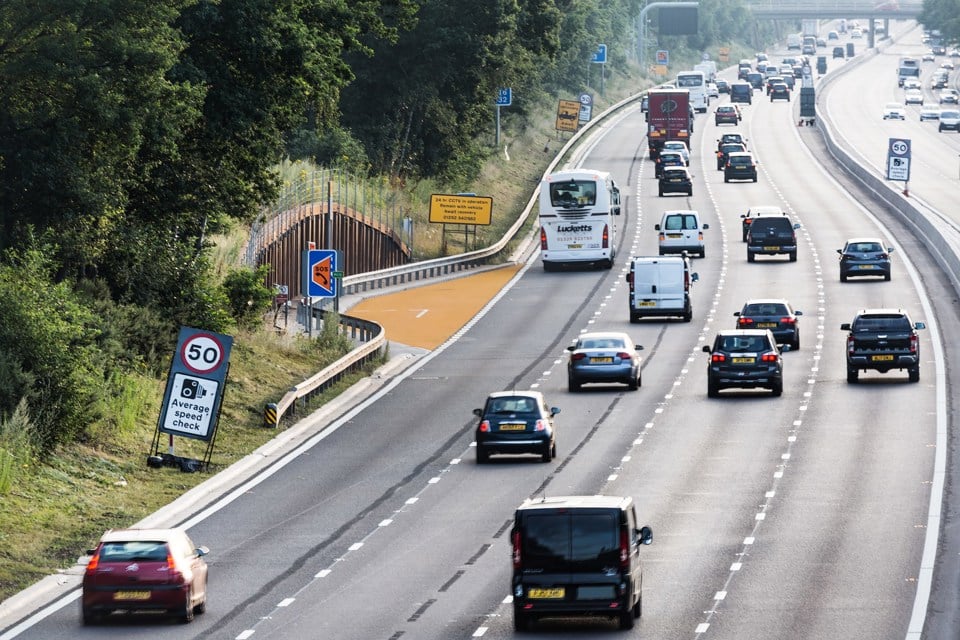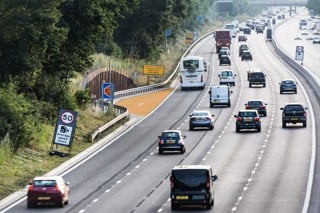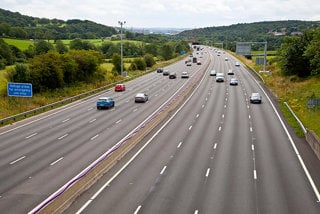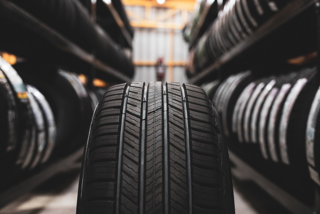Three quarters (73%) of drivers say they avoid driving on the hard shoulder of a smart motorway, even though the signs show that it is open for traffic, a new study from Kwik Fit reveals.
This proportion has increased from 56% of drivers when the company asked the same question in 2019, suggesting an increasing number of drivers are taking their own precautionary measures.
The Government announced a five-year pause in the introduction of new smart motorways to assess their safety last month.
Concern there may be a stationary vehicle ahead is the most common reason given by drivers who say they avoid the hard shoulder, stated by 31%.
The second most frequent response from motorists who steer clear of the hard shoulder is that they simply don’t think that smart motorways are safe and they therefore drive as if it’s a normal motorway, cited by 30%.
Roger Griggs, communications director at Kwik Fit, said: “Smart motorways have been a huge topic of debate and it is absolutely correct for the Government to pause their development to both gather data and ensure that the UK’s motorways are as safe as possible.
“It is clear that many drivers are yet to be convinced about the safety of smart motorways and therefore there must be clear transparency about all the data being gathered and the evidence on which future decisions are based.”
In 2019, almost a third (29%) of drivers avoiding the hard shoulder said they were often uncertain whether they should be there or not as the signs were unclear.
Kwik Fit’s new research has seen this fall to 22%, indicating a greater familiarity with the smart systems, yet this means that one in five drivers who don’t use the hard shoulder say they are still not confident they understand the signage.
Approximately the same number of hard shoulder avoiders (19%) say they are concerned about having no escape route to their left hand side if they have to change lanes quickly, 17% say they don’t like driving so close to the verge, and 15% are worried about damage from debris on the hard shoulder.
When asked about the Government’s plan to pause the introduction of any new smart motorways, more than one in three (36%) people believe smart motorways are more dangerous and rather than any pause, permanent hard shoulders should be reinstated as soon as possible.
One in five (22%) people in the Kwik Fit research thought pausing to allow more data to be gathered on their safety is a sensible approach as it is unclear whether smart motorways are more or less safe than traditional motorways.
One in 20 people (5%) believe that smart motorways are as safe or safer than traditional motorways and say all motorways should be converted to smart motorways wherever possible, while 6% say smart motorways are more dangerous but that any increase in risk is justified if they reduce congestion.
However, 12% say that the congestion problems should be tackled in a different way and that the money invested in smart motorways should be spend on improving public transport.
























JohnB - 15/02/2022 11:59
The roll out of Smart Motorways has been a disaster. Not only did they without safety evidence lengthen the distance between refuges, but also they were unconcerned with the public perception of the risks they introduce. I heard the recording of a motorist who broke down with his family in the car and was onto the emergency services when a truck drive into the back of the stationary stranded car. Luckily they weren't severely injured, but the distress of the motorist at the time was extreme. Following this, I no longer use the left hand lane of a smart motorway. The other issue is I have no trust that the video cameras are being adequately monitored. What I see on these motorways is a disconnect between traffic conditions and traffic volume and the active speed management system, also when a vehicle is stranded, the time taken to close the lane is too long. My conclusion is that due to inadequate monitoring this is too dangerous, as such I don't wish to put myself and other motorists at risk. When travelling in busy traffic at motorway speeds, if a high sided vehicle changes lane suddenly, you can be facing a stationary vehicle in your lane with minimal notice. And in many investigations, its that vehicle that is found to blame, which distorts the safety record of these smart motorways.